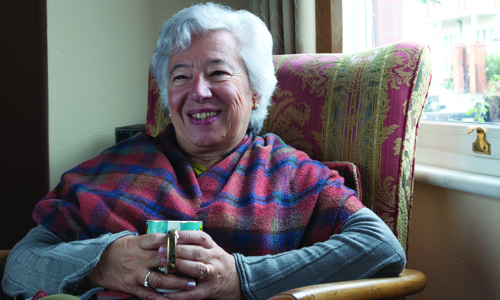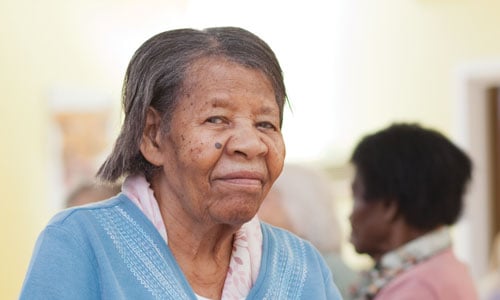There’s a clear cross-party consensus that we must build more homes to get to grips with a housing crisis that’s continuing to damage the lives of both younger and older people trying to find somewhere decent and affordable to live.
So it’s an encouraging sign that the latest house building figures show 241,130 homes were built in 2018-19, although some of this involved the conversion of existing buildings.
Although we can generally agree that building more homes is a good thing, it still matters that we build the right homes in the right places offering real housing choices for everyone, especially those who are in the rental market. Most pressingly we need more new council and housing association housing to reduce the numbers forced to live in insecure non-decent housing in the private rented sector, and to reverse the huge increase in homelessness.
Tackling homelessness
The official statistics show that older people accepted by local authorities as homeless increased from 1,800 in 2012/13 to 2,500 in 2017/18 (although these figures don’t really show the true extent of the problem). We may welcome an increase in the overall supply of new homes but many more of them need to offer a lower affordable rent and all of them need to be accessible and adaptable for current and future generations of older people and those with disabilities.
Age UK gives its backing
That’s why Age UK is giving its full support to a powerful new coalition of organisations, led by Habinteg Housing Association and the Centre for Ageing Better. The coalition named HoME (Housing Made for Everyone) is calling for all new homes to be built to a higher ‘lifetime home’ accessibility standards - alongside an increase in the supply of wheelchair accessible housing.
We saw some progress on this issue when the Government introduced a new ‘optional’ accessibility standard (based on the lifetime homes standard) into the building regulations in 2015. However, this standard doesn’t apply to all newly built homes as the ‘default’ position. Despite this, the enhanced standard was in fact successfully adopted in London and supported by the current Prime Minster, Boris Johnson, when he was Mayor. (Recently it has also been adopted by Brighton and Hove and Sheffield councils.)
Home truths
In our factsheet Home Truths, Age UK and Habinteg challenge the myths that have blocked improvements in home accessibility standards. It examines the evidence that shows reform would be relatively inexpensive — and but at the same time could result in major savings for the NHS and social care system.
The HoME campaign launched at a critical time when the Government was considering major reforms as part of its ‘Future Homes initiative’. Whatever Government we have after the General Election — it seems likely that modern standards for newly built homes will continue to be an issue.
It is right that the Government and local authorities give priority to how newly built homes (like the award-winning new council homes in Norwich) can help tackle climate change and address fuel poverty. But our ageing population means we must also prioritise homes that are accessible and adaptable for older and disabled people.
Support the HoME coalition so that new homes work for all generations and allow more of us to remain independent and in control of our lives as we get older.








